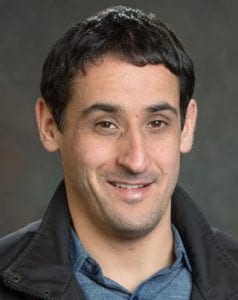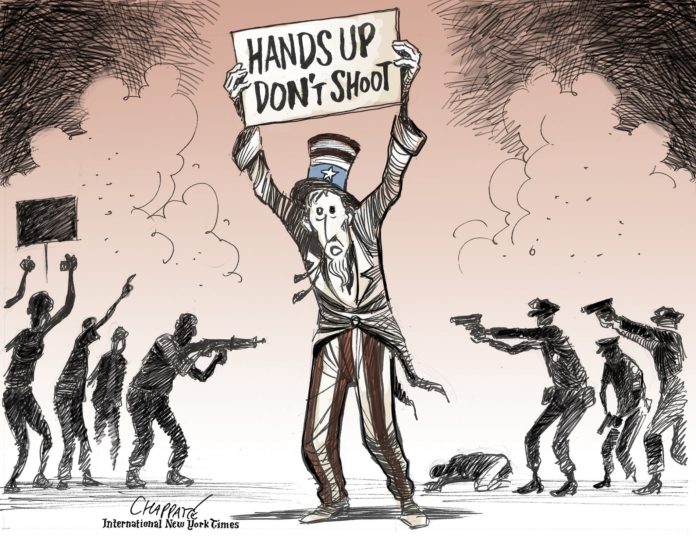BY JEREMY KUZMAROV
 Very few Americans today are familiar with August Vollmer, the “father of American law enforcement” who served as chief of the Berkeley police department from 1905-31.
Very few Americans today are familiar with August Vollmer, the “father of American law enforcement” who served as chief of the Berkeley police department from 1905-31.
In an era where police killings have become epidemic, we need to reacquaint ourselves with Vollmer’s ideal of democratic police forces which he advanced throughout his career.
In February 1951, Collier’s Magazine titled a profile of Vollmer “America’s Top Cop.” Writer Albert Deutsch noted that Vollmer’s home in Berkeley included as a prominent feature both a well-stocked library of books devoted to the exploits of the nation’s toughest criminals, and a jar of large tin candy balls which was for neighborhood kids who came to his house with their problems.
For nearly three decades as police chief of Berkeley, Vollmer used to tell all rookies: “Your main job as a cop on the beat is not to make a lot of arrests, but to help prevent crime. The best way to do this is to start with the children. Make friends with them. Guide them towards law-abiding citizenship. Show them that the law is their friend not their enemy.”
During the 19th Century, American police forces were notorious for their corruption and promotion of the “third degree,” or torture methods in interrogation. Alexander S. “Clubber” Williams, a corrupt cop in New York’s Vice District, symbolized the era when he told a reporter that “there is more law in the end of a nightstick than in the decision of the Supreme Court.”
Vollmer pioneered a more professional approach to policing in Berkeley that influenced police reform efforts nationwide. A strong proponent of scientific policing, he opposed capital punishment and embraced a social work approach to policing, visiting local jails himself each morning to talk to inmates and urging his officers to interact with members of the community while walking their beat.
Vollmer believed in the importance of proper training and education for police and helped found the Berkeley School of Criminology, which evolved as an institution dedicated to studying police problems and developing solutions. A veteran of the Spanish-American war who cut his teeth training police in Manila in the early 1900s, Vollmer was more liberal than many of his contemporaries in defending communists’ right to free assembly and speech and in criticizing drug prohibition laws.
Presciently, he observed that: “Stringent laws, spectacular police drives, vigorous prosecution and imprisonment of addicts and peddlers have proved not only useless and enormously expensive but they are also unjustifiably and unbelievably cruel in their application.”
If Vollmer were around today, he would recoil in horror at the epidemic of police shootings gripping our nation. He would be against stop-and-frisk and the broken windows policing model promoted by Donald Trump and ex-Mayor Rudy Giuliani of New York, opposed to the Pentagon’s 1033 program providing military equipment to police forces and against the school-to-prison pipeline and the War on Drugs.
August Vollmer was not able to solve all the problems with police forces in his time as he failed to effectively reform the Los Angeles Police Department when he took it over in 1926. However, Vollmer possessed a sound conception of how a genuinely liberal and democratic police force should function, and his is the model we need to turn to today as we embark on a program of reforming our police.
– Jeremy Kuzmarov is J.P Walker Assistant Professor of History at the University of Tulsa and author of Modernizing Repression: Police Training and Nation Building in the American Century [University of Massachusetts Press, 2012]







